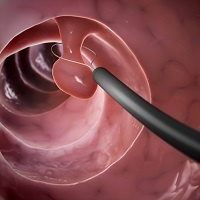
Treatment will depend on where the cancer is and how far it has progressed. Most people will need an operation or, in rare cases, a stent. An operation might be to cure you, but if the cancer is too far advanced to be cured, an operation will still be necessary to relieve the obstruction of the bowel or bleeding the cancer may cause.
A stent is an expandable “spring” that can be put into the colon via a colonoscope (without an operation) and its function is also to relieve obstruction as a temporary measure.
Although age and general health may play a role in the outcomes of the surgery, the tumour-associated outcome is not affected by age. Therefore, cancer surgery should not be limited or denied on the basis of age. Poor health or other risk factors may prevent the option of surgery.
A permanent colostomy (the so-called ‘bag’ or stoma) is not very commonly needed with modern surgical techniques, except for tumours very low in the rectum. Temporary colostomy may be used in certain cases and are reversed after a few months when the bowel is reconnected.
As with all cancers, the earlier the disease is discovered, the better the prognosis. For early stage cancers, surgery and careful follow up may be all that is required. For cancers that show early signs of spread into adjacent lymph glands, adjuvant or risk reduction chemotherapy may be recommended. Depending of the level of the risk and various other factors, the type of chemotherapy could be tablets taken for 6 months or more intensive intravenous chemotherapy, also usually for a period of 6 months.
Some patients with rectal or recto-sigmoid cancer (low down in the bowel) may receive a combination of radiation and chemotherapy before and after surgery. This allows the tumour to be made smaller and allow removal without having to have a permanent colostomy.
Colorectal cancer tends to spread preferentially to the liver and sometimes to the lungs. For these more advanced (metastatic) cancers, chemotherapy will be administered, usually following surgery. This treatment may sometimes allow the liver or lung secondaries to be shrunk and then surgically resected. Other times, it’s to allow regression or slowing of the growth of the cancer and so prolonging life, but this treatment isn’t curative. All patients will be followed up at regular intervals after the surgery. X-rays and blood tests, including the CEA (a tumour marker that may tell if the cancer has recurred), will be performed regularly.




 Publications
Publications
 Partners
Partners














